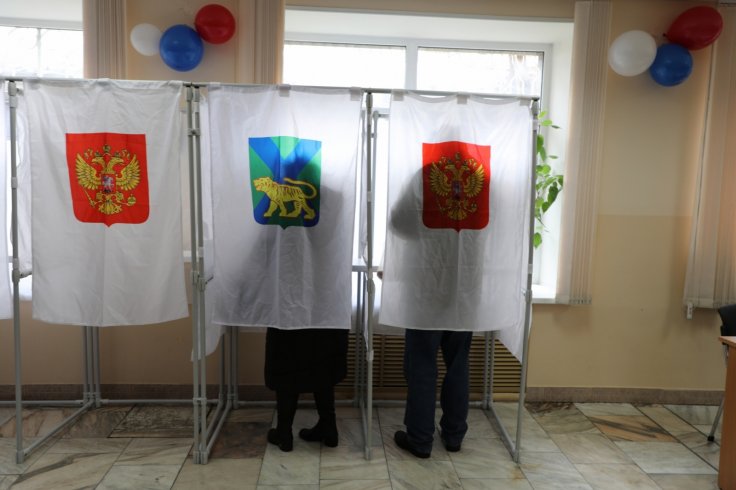
Voting was underway for Russia's presidential election on Sunday, in which over 100 million citizens will choose the country's leader for the next six years.
The polling stations will remain open from 8 a.m. to 8 p.m. in every Russian region in accordance with the 11 different time zones, reports Sputnik news.
The number of eligible voters in Russia equals 108.9 million people as of January 1, while more than 1.87 million people live abroad.
The results will be announced on Monday.
Apart from incumbent President Vladimir Putin, the other seven contenders are: Sergei Baburin from the All-People's Union party; Communist Party candidate Pavel Grudinin; Civil Initiative party candidate Ksenia Sobchak; Communists of Russia party chairman Maxim Suraykin; Presidential Commissioner for Entrepreneurs' Rights Boris Titov; co-founder of the Yabloko party Grigory Yavlinsky; and head of the Liberal Democratic Party of Russia Vladimir Zhirinovsky.
First polling stations opened in Kamchatka Territory and Chukotka Autonomous Area. It opened in capital Moscow nine hours later, Sputnik news reported.
According to the Central Election Commission, the voter turnout in most of the country's eastern regions was 30.37 percent by noon (local time).
Kamchatka Territory had a 31 percent turnout, while the Magadan Region saw 27.7 percent.
Chukotka boasted a 47.3 percent turnout and Sakhalin had 29 percent.
President Putin is currently seeking a fourth term and pre-election polls have placed the 65-as a clear front-runner, reports CNN.
There is no meaningful opposition in the running, and Putin's fiercest political opponent, Alexei Navalny, has been barred from competing.
Putin is the country's longest-serving leader since the Soviet dictator Joseph Stalin.
A win would mean a Putin-led Russia until 2024, after which he is constitutionally obliged to stand down.
The Kremlin, however, is concerned about turnout.
The campaign period and lack of competition have left some Russians uninspired.
Navalny has called for a boycott of the election, reports CNN.
A wave of anti-government protests in the past year also suggests growing fatigue with corruption scandals seeping through the Kremlin and Putin's inner circle.
(IANS)








